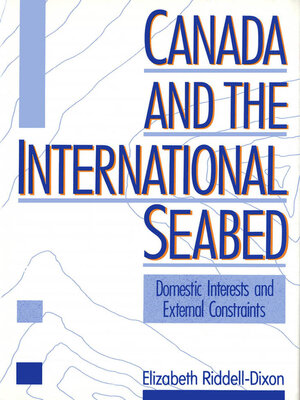Canada and the International Seabed
ebook ∣ Domestic Determinants and External Constraints
By Elizabeth Riddell-Dixon

Sign up to save your library
With an OverDrive account, you can save your favorite libraries for at-a-glance information about availability. Find out more about OverDrive accounts.
Find this title in Libby, the library reading app by OverDrive.



Search for a digital library with this title
Title found at these libraries:
| Loading... |
This stronger alliance gave priority to negotiating an internationally acceptable treaty and safeguarding Canada's land-based nickel industry. A second coalition - officers from the Department of Finance, the Department of Industry, Trade, and Commerce, and the Ministry of State for Science and Technology - contended that the push for quantitive restrictions diverted attention from the more crucial areas of protection of technological and financial resources. Riddell-Dixon argues that the dominant coalition succeeded because of ministerial support, structural and functional advantages, and an effective choice of tactics. Consequently they were able to manage other domestic sources of foreign policy. Canada and the International Seabed addresses several debates central to Canadian foreign policy, including the relative importance of domestic determinants and international constraints, the nature of intra-governmental decision-making, the relationship between government decision-makers and interest groups, the role of provincial governments in foreign policy, and the role of international conferences in solving global problems.







